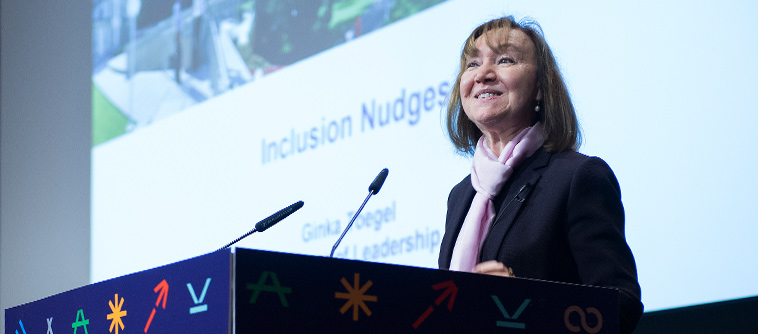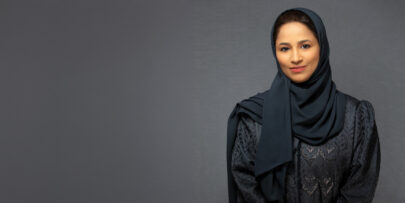
Over 250 of the equestrian world’s top decision makers gathered in Lausanne at IMD business school this week to shape the future of their sport at the 8th edition of the International Equestrian Federation’s (FEI) Sports Forum.
In his opening remarks FEI President Ingmar De Vos thanked IMD for hosting the event. He pointed out that the FEI Sports Forum is essential to the governance of equestrian sports around the world. Mr. De Vos also highlighted some other important items on the agenda: gender equality, the discipline of endurance, reining, the Tokyo 2020 Olympic and Paralympic Games and the challenges of competing in hot and humid conditions.
The power of nudges
This year’s edition featured IMD Professor Ginka Toegel who addressed gender equality in the business world.
Professor Toegel pointed out that biases from both genders have a strong influence on inequality in the workplace and that the science behind “nudging” – actions designed to gently push people toward taking a particular course of action – could be the way forward.
“Nudges can help guide our brain away from performing emotional problem solving toward rational problem solving to make the right decisions,” Professor Toegel said.
One example of a type of nudge was from an orchestra which did blind auditions to choose new members. By not being able to see the person trying out or hear if they were wearing high heels, the jury was able to focus on the quality of the person’s performance.
According to Professor Toegel, an effective approach when organizing important decision-making meetings is to ask: Is everybody at the table? Are all the constituencies who will be affected by the decision represented? Including both genders?
“Biases won’t disappear soon but what we can do is be aware that we have them, so we can take action,” said Professor Toegel in closing.
Gender equality in sport
Next up, CEO of Women at the Table, Caitlin Kraft-Buchman; Independent Chair of the British Equestrian Federation, Mohamed Elsarky; as well as Ingmar De Vos; and Sabrina Ibáñez, FEI Secretary General, participated in a panel discussion about equality and inclusion in equestrian sport.
Ms. Kraft-Buchman began the discussion by pointing out that some major scientific breakthroughs have been made by introducing a woman’s perspective into male dominated research teams. Having diverse teams helped them consider factors that otherwise they would not have, she said.
Ms. Ibáñez highlighted that more female participation in boards increased productivity and retention of employees. She also demonstrated that equestrianism is doing very well on many fronts: 60% of all equestrian athletes are women and 46% of elite athletes are men. Officials are 46% women. But that like in many industries, there is still work to do at the top: FEI committees are 64% male and the board is 77.8% male
Mohamed Elsarky said his organization was able to increase equality by adhering to the Equality in Sport Standard, which provides a step-by-step guide.
Ms. Kraft-Buchman said that an important factor is to have buy-in from male power players as well as a clear plan and targets. She said for women to make a real difference on boards they must not be token board members and should have a critical mass of at least three. They should also be part of key decision-making committees, she pointed out.
Having more female board members doesn’t mean excluding men: “Why not expand the size of the board?” she asked.
When asked when gender is more important than competencies, Ms. Kraft-Buchman replied “Never. Excellence first. But we can expand our definition of excellence.”
A final recommendation from Mohamed Elsarky wrapped up the discussion. “It’s important for leaders to create an environment for gender equality. We have to make it clear that women have equal opportunity and chance. We need to rid the selection process of bias.”
The forum continues tomorrow and will focus on the discipline of Endurance.
Find out more about the FEI Sports Forum.


